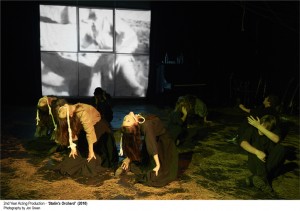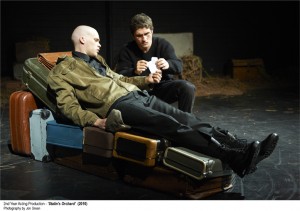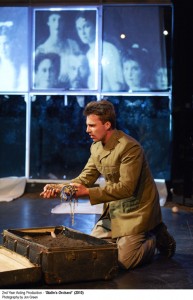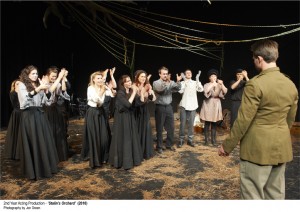Taryn Fiebig (soprano)
Mark Coughlan (piano)
Hale Auditorium
reviewed by Neville Cohn
If William Walton’s song cycle A Song for the Lord Mayor’s Table had been the only work on the program presented by Taryn Fiebig and Mark Coughlan, it would have been an altogether satisfying evening.
Had the shade of the composer hovered over proceedings at Hale Auditorium, it would surely have nodded approval at the performance of his song cycle.
From first note to last, this was a reading to savour with its complete identification with the score by both musicians. The words were sung with a very real understanding of style – and the piano part could hardly have been bettered. It was a model of its kind.
Walton’s cycle is fiendishly difficult to bring off in both physical and interpretative terms – but on both counts the two musicians came through with banners flying. It was offered with splendid flair, the high point of the recital, not least for the exhilaration that informed so much of the more extravert songs in the cycle.
Also on the program were a bracket of lieder by Schubert as well as Samuel Barber’s Knoxville Summer of 1915. The latter was less persuasive due primarily to some less than clear diction. It lacked the fine focus that made the Walton cycle so satisfying. And of the Schubert bracket, it was Die Manner sind mechant (in which a young woman complains to her mother about her boyfriend’s roving eye) that came across best; it was a miniature delight.
Unintentionally, Taryn Fiebig has joined the ranks of that small group of artists who perform bare feet. Like the extraordinary flamenco dancer La Chunga and Rumanian violinist extraordinaire Patricia Kopachinskaja, Fiebig came on stage sans footwear which, she explained, was the unwanted outcome of playing with her pet dog. This resulted in a fall and broken toes which precluded the use of footwear.














